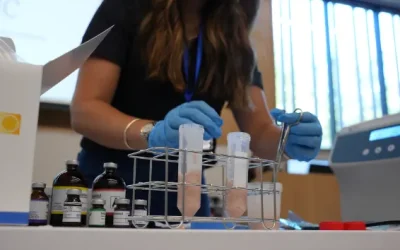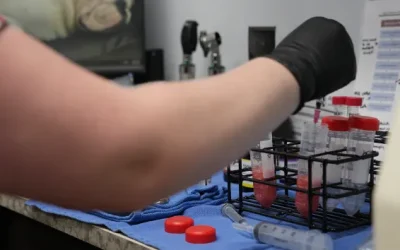This week, I’m switching gears. Most of the studies I cover are animal-focused, but this time we’re looking at a human pilot study that gives us insights we can bring right back into veterinary medicine.
The paper is titled:
“Adipose tissue-derived mesenchymal stromal cells for treating chronic kidney disease: A pilot study assessing safety and clinical feasibility” by Sandra Villanueva, Fernando González, Eduardo Lorca, Andrés Tapia, Valentina López G, Rocío Strodthoff, Francisca Fajre, Juan E. Carreño, Ricardo Valjalo, César Vergara, Manuel Lecanda, Jorge Bartolucci, Fernando E. Figueroa, and Maroun Khoury. It was published in Kidney Research and Clinical Practice in 2019.
Why This Matters
CKD is a relentless disease—progressive, permanent, and costly. It’s a major issue in both human and veterinary medicine.
In dogs, about 1% are affected overall, climbing to 10% of older dogs. In cats, around 3% are affected, but prevalence can skyrocket to 50% in cats over 15 years old. Certain breeds are predisposed, and dogs often face worse prognoses than cats.
Current therapies don’t halt disease progression. They can slow it down, but they come with costs and risks. That’s why stem cell therapy is so intriguing. MSCs bring anti-inflammatory, trophic, and immune-modulating effects that may protect kidney structure and function.
At Ardent, we’ve seen cats treated with MSCs show promising results for more than a decade. Even when bloodwork doesn’t improve dramatically, appetite, weight stability, and energy often do.
Study Design
The study enrolled seven adults, though one was removed because their cells didn’t expand well enough in culture. That left six patients, three men and three women, with an average age of 42 years. Four had hypertension, and serum creatinine averaged 2.22 mg/dL—well above normal values.
The treatment involved a single intravenous infusion of autologous adipose-derived MSCs. Each patient received one million cells per kilogram of body weight, delivered in 120 mL of LRS over 30–40 minutes. Most patients received the full dose, though one only received about 59% of target.
Instead of a separate placebo group, the researchers compared each patient’s 12 months prior to treatment (the control period) with their 12 months after treatment (the intervention period). Patients were followed for a full year post-infusion, while maintaining pharmacologic therapy, blood pressure control, and dietary protein restriction.
Results
The infusion was well tolerated, with no treatment-related adverse events reported. Safety labs—including coagulation, liver function, and metabolic markers—remained stable.
Proteinuria, which had worsened in most patients during the control period, decreased in nearly everyone after MSC therapy. Even the patient with renal dysplasia, who did not improve as much as the others, showed a major slowdown in progression compared to the year before treatment.
Renal function results were mixed. Overall eGFR decline wasn’t statistically significant, but five of the six patients saw plasma creatinine reductions ranging from 7.5% to 49%. Patients with less inflammatory forms of CKD appeared to stabilize more effectively, suggesting MSCs may exert benefits beyond their anti-inflammatory effects.
Why It’s Exciting
For me, the most striking part of this study is the safety and feasibility. Every patient tolerated the infusion, and the dosing strategy was achievable.
The improvement in proteinuria across nearly every patient is also encouraging. Even though eGFR didn’t show dramatic changes, the reductions in creatinine and stabilization in several cases align with what we often see in veterinary medicine. Cats treated with MSCs may not always show dramatic bloodwork shifts, but their appetite, energy, and overall quality of life often improve.
It’s also worth noting that this study used adipose-derived MSCs. These are less invasive to harvest and yield more cells compared to bone marrow-derived MSCs, which have even been reported as defective in some CKD patients. This choice makes sense for both human and veterinary applications.
- Safe, single IV dose
- Proteinuria improved in nearly every case
- Clear parallels for veterinary CKD patients
Final Thoughts
This pilot study suggests that a single IV infusion of autologous adipose-derived MSCs is safe, feasible, and potentially effective for CKD. While the sample size was small and more controlled trials are needed, the consistent reduction in proteinuria is a signal worth paying attention to.
For veterinary medicine, it reinforces what many of us already see: stem cell therapy can provide meaningful improvements, especially in quality of life, even when blood values don’t tell the full story.
What do you think—could MSCs reshape how we approach CKD in pets?
You can read the full study and email me at adrienne@ardentanimalhealth.com.




